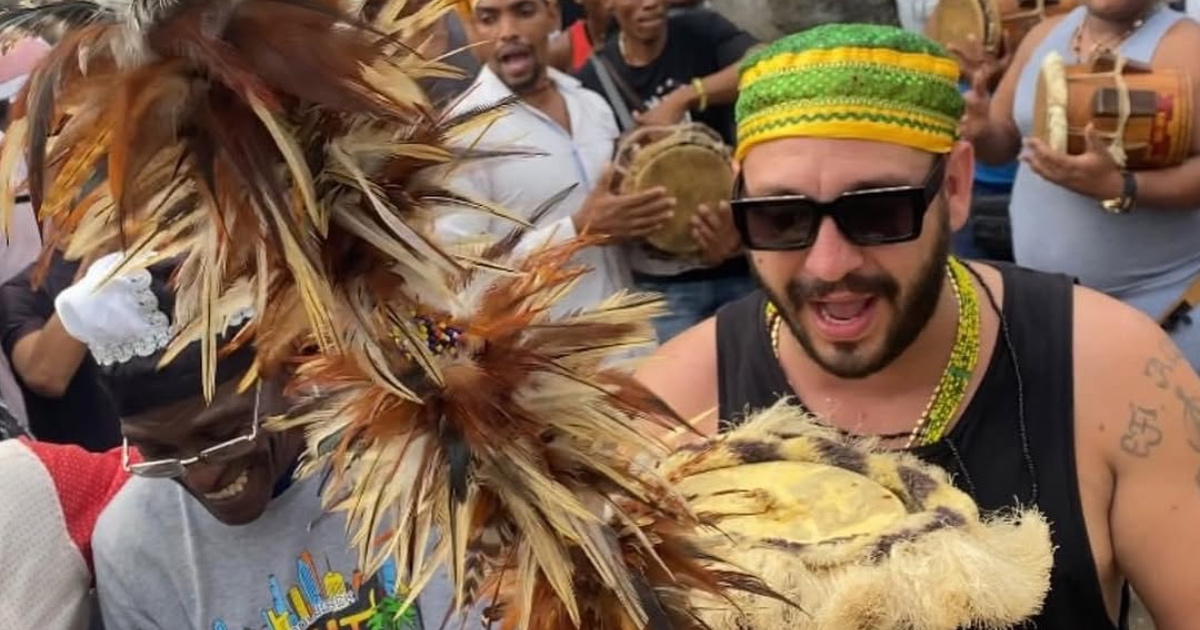
Related videos:
On the occasion of Abakuá Day, Cuban musician Emilio Frías broke some stigmas surrounding those who proudly belong to this secret society.
In a post on his social media, the director of the orchestra El Niño y La Verdad reflected on some of the myths and unfounded negative beliefs that exist about those who belong to this religion.
"To be Abakuá is not to be problematic or confrontational, nor is it about carrying a weapon to show superiority over other men, or painting an Ireme on your body. Being Abakuá means being a man of integrity in society; it means being a good father, a good son, a good brother, and even a good enemy, because the life of any man deserves respect, even if they are your adversary. Nowadays, it is very difficult to find men (although they do exist) who fully embody the principles of our secret organization," the artist affirmed.
"Happy Abakuá Day to all the ecovios who, until today, have upheld our religion with prestige and accuracy, not to those who have destroyed and discredited it," he wished to everyone who, like him, takes pride in belonging to this society.
“Abakua Obonecue Erife Ecue Apapa Obane Efi Acamaro 20 years ago, and Empego Mogobion Efi Musagara 16 years ago, without intrigue, without gossip, without commentary. Happy day to every man who brings pride and prestige to our religion,” added the musician alongside several photos celebrating the Abakuá.
This isn't the first time Emilio Frías has defended the Abakuá, dismissing the belief that they are all criminals.
Frequently asked questions about Emilio Frías and the Abakuá society
What has Emilio Frías said about the Abakuá?
Emilio Frías has dispelled the negative stigmas associated with the Abakuá, stating that to be Abakuá is to be an upright man in society, a good father, son, and friend. He has emphasized that not all Abakuá are problematic or conflictive, as they are often mistakenly perceived.
How has Emilio Frías commented on the Cuban regime?
Emilio Frías has been critical of the Cuban regime, stating that he will not perform in Cuba until the government changes, although he respects the decision of other artists who choose to do so. Frías has called for respect for those who live in the U.S. and wish to perform on the island without facing political judgment.
What is Emilio Frías' relationship with other Cuban artists?
Emilio Frías has collaborated with several Cuban artists, including the reggaeton artist El Chulo, with whom he worked on the song "Malos Gustos." Frías takes a respectful stance towards other artists, regardless of their decisions to perform in Cuba or not, clearly stating that music and art should be free from political pressures.
Filed under: